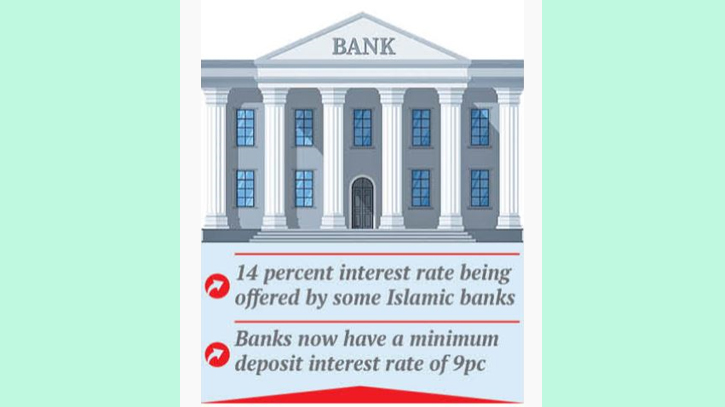
Photo: Messenger
A section of the banks in recent times have turned aggressive to have deposits in their frantic bid to address liquidity challenges – thereby prompting an unprecedented rise in interest rates on deposits.
Certain banks have been offering depositors interest rates as high as 14 percent. This strategy, experts industry insiders say, is reportedly contributing to a growth in bank deposits.
Commercial banks in the country are grappling with a day-to-day liquidity crisis, compelling some to resort to daily borrowings at higher interest rates from the central bank. Bangladesh Bank sources indicate that certain Islamic banks are leading in this practice. The central bank is reportedly disbursing over Tk 10,000 crore daily to address the liquidity needs. Additionally, inter-bank transactions are taking place at elevated interest rates.
Moreover, the government is now taking loans from commercial banks. Due to which the liquidity crisis in banks has increased. In this situation, banks are trying to collect deposits at an average of 10 percent interest against deposits. Some banks are offering interest up to 13 to 14 percent.
It is known that banks are using some strategies to pay interest against deposits. In this case, 9 percent for deposits less than Tk 5 lakh, 9.50 percent up to Tk 10 lakh, 9.75 percent for deposits above Tk 15 lakh and more than 10 percent for deposits above Tk 25 lakh. However, some Islamic banks are said to be paying interest up to 14 percent.
Seeking anonymity, managing director of a leading Islamic bank told The Daily Messenger, “The interest on the money we borrow in call money is very high now. Besides, these loans are taken for a very short period of time. In this case, we are giving importance to individualised deposit collection.”
Managing director and chief executive of a leading conventional bank told The Daily Messenger, “All the banks in our country are suffering from liquidity crisis more or less. The government is also now repaying the central bank debt by borrowing from commercial banks. As a result, we are now forced to reduce lending to the private sector.”
He also said, “The liquidity crisis has increased due to the extra money going to buy dollars. Due to this, more interest has to be paid against the deposit. We are getting quite a response to that.”
Meanwhile, the banks are able to collect the maximum interest of 11.47 percent against the loan. The six-month moving average (SMART) rate of Treasury bills is 7.72 percent. Banks can charge interest against the loan by adding 3.75 percent to this.
In this regard, Bangladesh Bank’s Executive Director and Spokesperson Mezbaul Haque told The Daily Messenger, “Banks no longer have the 6/9 rule. Banks can charge maximum interest against loan by adding 3.75 percent with SMART. Less than this can give interest on deposits at any percentage.”
“In a competitive market, it is natural that the higher the interest rate, the more customers will go there. However, Bangladesh Bank is keeping an eye on the fact that no bank collects deposits or gives loans unfairly,” he added.
Since 2022, a dollar crisis has compelled banks to purchase dollars at elevated prices. Simultaneously, depositors initiated withdrawals, leading to a liquidity crisis in banks. These factors have prompted many banks to halt the disbursement of loans in various projects, and the opening of Letters of Credit (LCs) has also been hindered.
Messenger/Sun Yath








